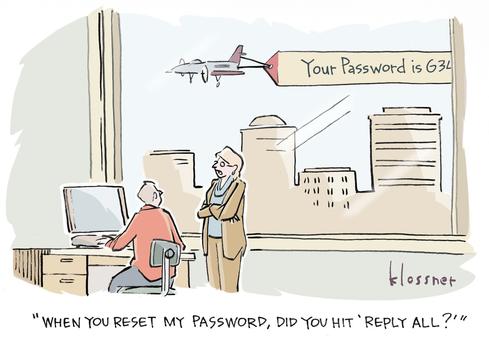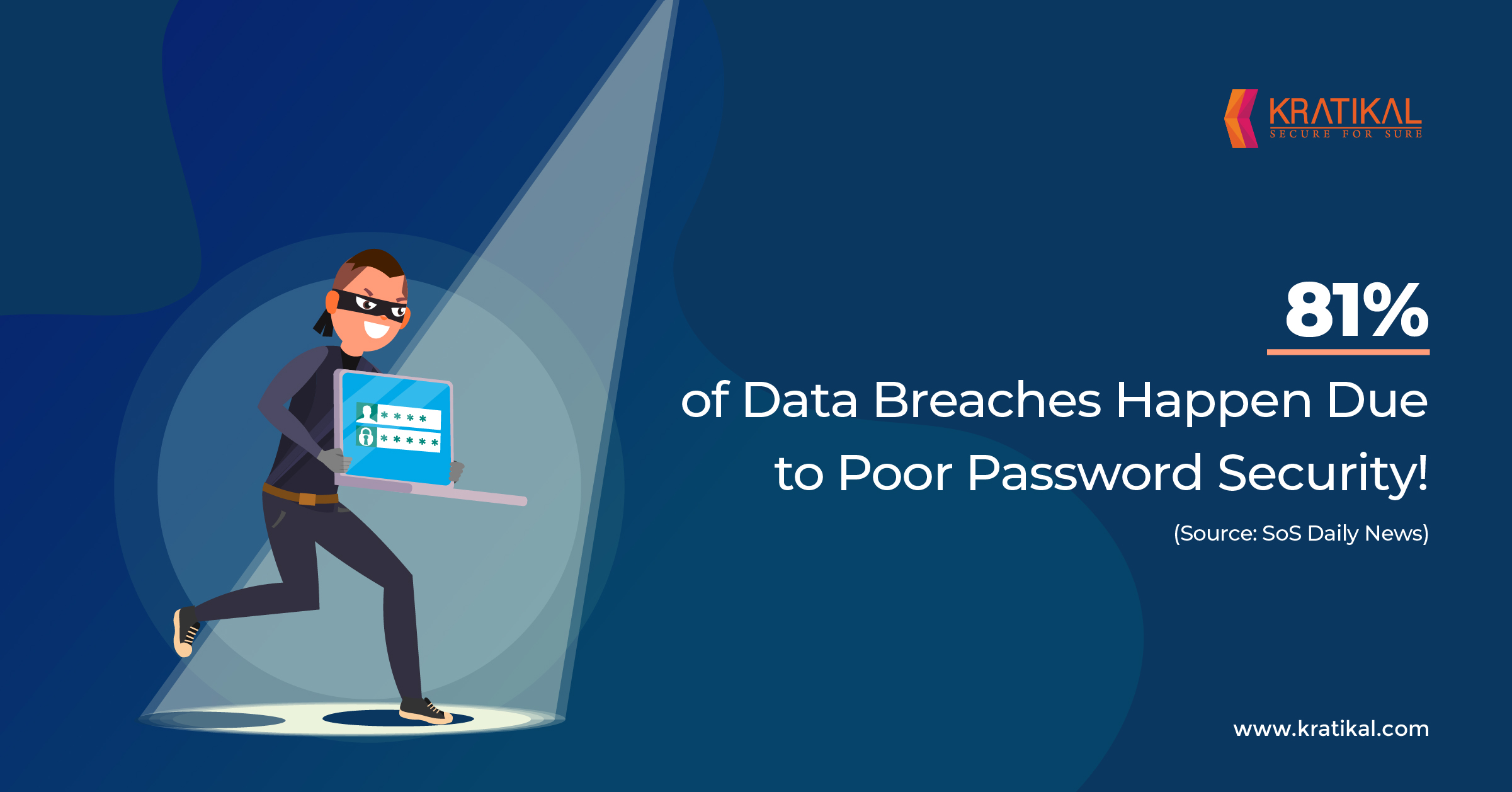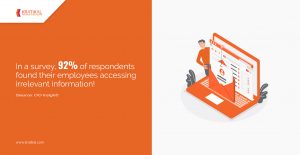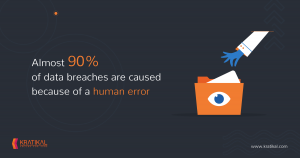According to the security survey, 78% of security professionals around the world believe that the biggest risk to endpoint security is human error. Moreover, the lack of cybersecurity awareness among employees is one of the biggest exploitable vulnerabilities in any organization.
Nevertheless, an organization can have the most robust security software in the world, but human errors like password sharing can lead to massive data breaches for a lifetime.
Some of the following statics show the criticality of password security in today’s date:
- Approximately by the end of 2020, password usage across the globe will grow by 300 billion.
- 81% of the data breaches have been reported because of poor password security.
- About 61% of companies use more than 500 accounts with non-expiring passwords.
- A research article by ITProPortal stated that only 38%of companies update their admin passwords once a quarter while the rest do it very rarely.
- About 54% of small and medium-sized businesses don’t check up on their employee’s password practices.
- 25% of employees use the same password in all login credentials.
What are the Risks of Sharing Passwords at Work?

A perfect illustration of password sharing problem (Source: John Klossner)
One of the most challenging things in the digital world is managing online accounts by securing passwords from the reach of untrusted sources. Whenever a new data breach or compromised information of a company makes headlines in the news, the most common reason shines out to be poor password security.
Habits like password sharing, providing login credentials on unsecured websites, weak passwords, etc., put companies at expensive risks. In a study by a renowned password manager company, it was stated that around 61% of users are more likely share their work passwords than personal passwords.
There are various organizations that still take the matter of password security lightly. It is important for them to understand the consequences of password sharing at the workplace. Here are the top five security risks of password sharing at work:
1. Single sign-on (SSO)- SSO is an authentication scheme that allows users to use a single ID and password to access multiple corporate software and applications. An employee can use one password to access dozens of enterprise login accounts at the same time.
Even though this practice seems to be beneficial in easing the burden of memorizing and entering passwords, it has disadvantages too. In the common practice of password sharing, it will give rise to major password security vulnerabilities and issues in the organization.
2. Credential sharing- In several organizations, password sharing at work is a common practice for various reasons, but this practice can lead to dangerous results. According to cybersecurity research, it was found that 42% of people share their work login credentials to work together with their teammates.
While 34% stated that this practice reduces the cost of user-limited software. Whereas the rest of the respondents said that it is their company’s policy to share passwords for accessing specific accounts. In the end, no matter how effective these practices sound, sectors like Banking, Financial Services, and Insurance (BFSI) might fall at the risk of a massive data breach.
3. Password reuse- Almost every user has the habit of reusing the same password to log in to more than one account. But reusing the same old passwords only empowers workers to increase the threat of a single stolen password for the company.
Also, reusing a password across multiple websites might result in a data breach because if attackers get the hold of one site then they will try using the same information to target other corporate accounts as well.
Lately one of the biggest file hosting service operating companies in America became a target of a data breach. Cyber Attackers stole more than 60 million customer credentials of the company because of password reuse by an employee.
4. Cloud computing- Today many businesses are flocking to the cloud as it offers enterprise advantages like cost savings and fast development. However, there are many applications and software that are based on cloud computing that are poorly secured. In fact, it was surveyed that out of 12000 cloud services, 80% allow weak passwords, which is a major password security flaw. A stolen shared password can easily provide hackers with access to valuable and confidential information about the organization.
5. Emailed passwords- In order to collaborate with colleagues on a project or some other requirement, employees generally share passwords over emails. This practice of password sharing on emails becomes habitual due to the lack of security awareness training.
A security service-providing firm also once reported that less than 20% of employees telecommute are actually aware of the employee password-sharing policy of the organization.
It is essential to make employees understand the significant risks of password sharing on telecommunication. Such practices empower hackers to take advantage of sent messages while they go through the hacked email account of the employee.
How the Importance of Not Sharing Passwords Can Secure Organization?

Lack of security awareness among employees (Image source: ISDecisions)
No matter where you are or who you find the most trustworthy, habits like password sharing should not be encouraged. Even relying on shared passwords, best practices like password reminding or saving tools are not 100% secure! It is just like handing over your valuables to some stranger over an application or software.
Risks of sharing passwords at work would not only make professional data vulnerable but personal data too to cybersecurity threats. Organizations must consider implementing an employee password-sharing policy to protect the confidentiality of data.
The purpose of using a password is to safeguard data or sensitive information from unauthorized access. Employees working in an organization must understand the value and risks associated with password security. The security administrator of an organization should encourage higher authorities to have GDPR compliance implemented in place for password security.
Apart from that, every organization must provide security awareness training to its employees in order to understand the basic cybersecurity practices and how they must be followed in their day-to-day life.
Does your organization have an employee password-sharing policy? Let us know what are your views on password sharing at the workplace in the comment section. Thank you for giving your valuable time in reading this blog.
Hope you had a good read!








Leave a comment
Your email address will not be published. Required fields are marked *